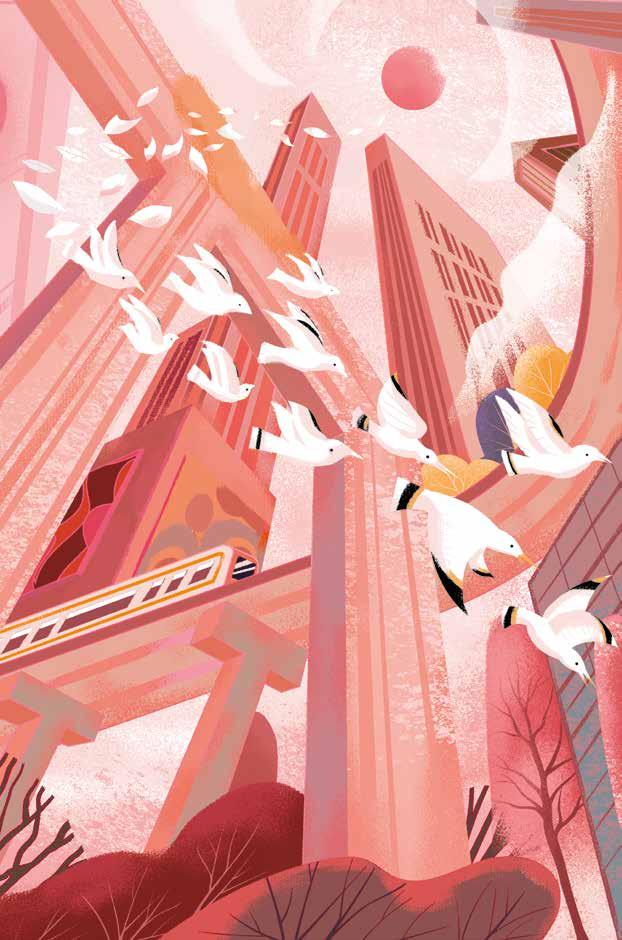National Poetry Competition
WINNERS’ ANTHOLOGY



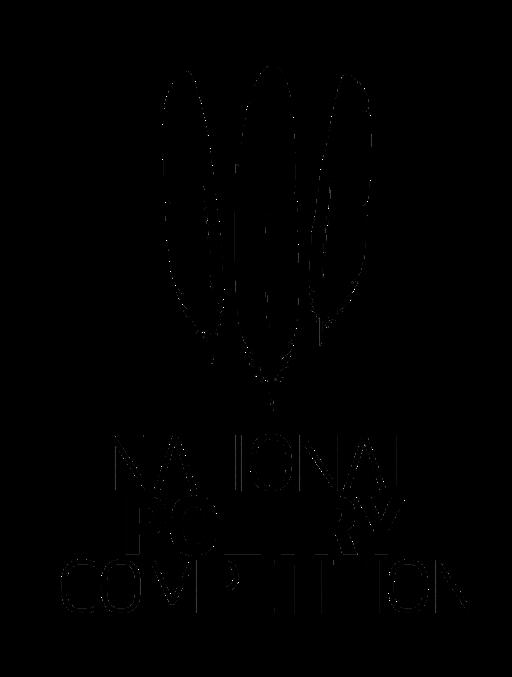
Jason Allen-Paisant, Greta Stoddart and Michael Symmons Roberts
The Poetry Society is the UK’s leading voice for poets and poetry. Founded in 1909 to promote ‘a more general recognition and appreciation of poetry’, the Society is one of the most dynamic arts organisations, representing poetry nationally and internationally. With innovative education and commissioning programmes, and a packed calendar of performances, readings and competitions, The Poetry Society champions poetry for all ages. To become part of our poetry community, visit poetrysociety.org.uk
Established in 1978, The Poetry Society’s National Poetry Competition is one of the world’s biggest and most prestigious poetry competitions. The Poetry Society would like to thank the writers from 103 countries who submitted more than 17,800 poems to the 2022 contest. For many poets, whether established or emerging, the prize has proved an important career milestone. Distinguished winners include Sinéad Morrissey, Ruth Padel, James Berry, Carol Ann Duffy, Jo Shapcott and Tony Harrison. Poems are judged anonymously and the top three winners are published in The Poetry Review, one of the world’s leading poetry magazines. Winners are also invited to participate in further Poetry Society events and commissions. All the winning poems are published on The Poetry Society’s website, poetrysociety.org.uk
The Poetry Society especially wishes to thank our 2022 judges: Jason AllenPaisant, Michael Symmons Roberts and Greta Stoddart.
‘Winning this prize is a blessing. I couldn’t be more grateful. It’s exciting to think that, because it’s an international prize, doors for new poetry friendships may open all over the world. My father was a US ambassador. I’m an ambassador for poetry.’
– Lee Stockdale First Prize Winner National Poetry Competition, 2022 Lee StockdaleIt has gas pumps with red horses and wings, but is not merely a gas station, your father is not my father, standing over me with a clipboard, checking off things done and left undone.
He seems happy at this last stop before death for those living, before life for those not yet born, where his general store deals in flour, sugar, pieces of hacked meat, or liver, reddish purple, a heart he wraps in brown paper. He cuts my hair beneath the tin awning. I must have gotten here from one direction or other on the road that stretches horizon to horizon, the desert heat shimmering my eyes into pools.
I crawled in on my hands and knees, he handed me an ice-cold orange Nehi drink. It’s pure coincidence that this store is my father’s. I ask him where all this stuff comes from, as no trucks travel this road to replenish merchandise no one buys. He doesn’t like questions that challenge his existence. I become quiet, he’s cutting my hair and might consciously or unconsciously make me look bad.
You’re doing a great job out here, I say, which he knows is bullshit –how many fathers, even if they’re dead, set up a general store in a desert. I persist, You keep the shelves stocked, floor broomed, bathroom clean. The more I talk, the more I encourage myself to love him for the trouble he went to making all this seem real, with cans of various sized nails, beans, rice, shelves of liquor, deli section with giant pickles.
I begin to see what a dear, sweet man he is. Is this because he is dead? I wish he were alive again.
I don’t think he killed himself to be mean to me personally. At night, he says, howling coyotes come down from the mountains and leave notes, Bible verses, threatening messages, love letters. Everything a coyote wants to get off its chest. I ask if they come every night. He says, Without fail.
Tife Kusoro the only other dark-skinned girl i n my year 5 class ate her scabs she’d peel a piece of land off her elbow stare at it for a while like a cartographer like God on the sixth day looking at what she had made deciding that it was very good I saw her do it once put the past in her mouth I pretended not to see because I didn’t want her to feel exposed because my family was new to the country and someone had already taught my mum to buy bleach and lemons for the bathroom and those little fragrant bottles you spray into the bowl before you shit when I looked back up the girl lifted the scab off her tongue lightly like a baby butterfly saved before its tree was first destroyed and held it up to me in my house we eat the dying to keep it alive we eat our language look my mum said if england is a house we are a W.C. that flushes very quietly the girl said in my house I wrote a proverb the safest place for you is inside your stomach
Sometimes I imagine the sun striking midday will drop in a hand’s motion and smite me. Confess your crime: mine is to love like the craftsman’s apprentice who never dirties her hands in acting. My dad’s is arguing. In the debate about the divine watchmaker, he lists mutating viruses, parasitic worms, the test runs of extinction and I say if God exists, I think they might be a whale. Unfathomed and wildering. No cogs and quick fingers. Just this warm-blooded, blubbered God on a migration path I can’t follow. Perhaps this is because if God sung a song, I am certain it would cover vast distances. It would be peaceful
as weeping and if whales could cry, God would. They say God saw the world and it was good but this is omniscience tangled in ghost gear, surfacing through oil slicks, starving for sustenance in a sea brought to simmer. We barrel into God at 25 knots and God swallows it – our loneliness and toothbrushes, bitterness and broken sandals, so when we send up plankton bloom prayers God has no room to stomach them, becomes deaf to all but military sonar, seismic surveys and this: the waterlogged clock, the leaking battery, the alarm ringing in God’s gut.
If you take a walk into a book be sure to keep the cover open advised my uncle who once failed to do just that and spent years trapped in his own private Gulag. You could always sense he was cold, soul-cold.
He wore gloves in summer and a scarf, refused to take his shirt off even in a heatwave.
Of a generation who disdained talk of the personal, he’d sometimes confide to whoever happened by
some private thought on comrade Denisovich, a man who’d never betray a confidence nor risk one himself,
a man you could rely on to survive with you or without you – stale crust sewn into his mattress, spoon tucked down his boot – while citizen guard, enjoying the warmth of his circumstantial lot,
mustered and abused the cold and stricken. I like to think it was Ivan himself who finally recognised my uncle.
I see them sharing top bunks, reflecting one another’s exhaustion, comrade Denisovich with two years left and no faith in release, my uncle inhabiting his dread. Ivan looks Ivan in the eye. There’s no end to this, he says,
you should go back to your own world. It will admit nothing – but keep the book open for those of us inside.
My father used to say that each world we inadvertently create has its own weight. What’s the difference between this life & that one, he used to ask, though he knew that two molecules with the same shape but different vibrations could trigger two different smells: a smell of Sauvignon Blanc & one of rot. He didn’t think – & neither do I nowadays – that he could decay so fast, his spine was pressing on a shrivelled nerve
& his heart was falling silent too often. He’d say that life is not about replicating happiness & when he looked at my mother – his head heavy with wine – I knew he meant it. He once sat on a bench after work
& considered his life, deciding to return home against all odds. He fell off his bike & scraped his knees against the hot bitumen pavement, feeling as though he could make it again because the immaculate sky was enough.
There was so much light in it that by the time it crossed my father’s body he felt like a different man.
If the god particle generates mass, in less time than it takes for someone to see you then we can never quite know one another, he said & looked at his wine glass as though he thought himself already old.
Caroline Druitt
We said goodbye at Nelson’s Column
My father and I are both just twenty when we see each other at the club. He holds a large cigar in his right hand, the arm of a beautiful woman in his left.
I accept his offer of a drink, the orange twist tangoes round the lip of the glass. We pass the cigar back and forth, watch smoke swell and dissipate like time.
His lithe frame, my freckled skin, his lopsided smile, my echoing laugh. We both savour the sweetness of freedom under our tongues.
This is my favourite song, he says but I already know. We play saxophone in the air, pressing on the night’s high notes.
When the sun comes up, we tumble out into the day, newborns but whiskey scented. The grass is candlewick yellow.
He knows a 24-hour shop off Pall Mall for one more drink. We sit on the lions of Trafalgar Square. Roar ourselves into the morning.
i)
My stepfather is turning into a horse. He stands patient, his long face tranquil, a steady blink of the eye the only movement. He is becoming old horse, slow horse, waiting still and stolid at the fence, gazing bland into the middle distance. His mind is turning horse, turning to long hours in the field grazing on thoughts that are no more substantial than the flies, to nights and days waiting through the weather, waiting but expecting nothing at all.
ii)
My stepfather is fading out of himself into a framed sepia tint. Like all old photographs, it is him but not him, a static moment, a stilted pause. Silent and unmoving, he has the forced look of artificial afternoons, posed parties by the lake where the little ones grow restless and the adults arrange themselves in rigid tableaux, desperate to catch the light. We put him in a safe place where we can see him and where he won’t get broken.
iii)
My stepfather has become a hiding place. He has hidden himself inside himself, and then perhaps inside himself again. It is the best hidey-hole in the whole of the game, the one place you would never think to look. But he’s forgotten the rules of hide-and-seek and doesn’t know that we are playing too. Now this round is coming to an end and all the other players are found out. There’s nothing left to do but hunt for him, though we’re scared the entranceway is blocked.
And if she cries it’s because her blood is thin, the marrow sucked from her bones by fourteen children. If she doesn’t sleep, it’s because God circles her quarried pelvis like a buzzard, folds her over like a prayer, pours her to the ground as if she’s made of water. If she falls out of herself, into herself, repeats herself like a canticle, Christus amor meus est, it’s because the light of the world sits on her bed, lets her know who she was before she splintered into pieces. If mud spatters her skirt, if her head is blue from banging on the ground, it’s because she knows the weight of love, the weight of a man hanging, his body pulling down the sky, the world’s suffering pressing on his scalp like an inverted pyramid. If she rolls in church aisles for priests to stumble over, it’s because their tongues are yellow with butter and cannot deliver silence. If she weeps before bishops at Ely Cathedral, it’s because she’s heard a girl in France has been set alight for hearing sacred voices. If she accrues wealth in her mill and brewery, it’s to buy chastity from her husband, servants for her children, travel to Spain, Jerusalem, Rome. If she grieves over a splinter of wood from Calvary, it’s because this is a tree that has touched a man with holes in his hands. And if she sobs before Julian of Norwich, it’s because she feels herself believed at last by a woman who knows God is not a noun but a verb: the very act of causing, birthing, doing, dying, loving, moving, falling, rising. Everything.
* The title of this poem is borrowed from Elizabeth Smart’s poem ‘Margery Kempe’ in A Bonus (Polytantric Press, 1977).
Jennifer Nadel a cold coming and on the twelfth day I took you wrapped in a shawl up the stone steps to register your birth us in our jammies a stranger holding the door it being nearly Christmas piped carols hung above plastic mistletoe down the hall we shuffled past the room where I nearly wed wet slippers slipping on cold confetti marble to the census keeper was it death or birth we had come for? hearing your cry I tried to explain there was no name and because I was crying too and the chairs all taken and there were others to consider who had deaths rather than births and names that were known she set me on a plastic stool you clamping tugging nipples oozing milky blood while outside a bright star hung low in the sky
The pretty goat can’t help that she’s studded with her own droppings. The cleansing sea beyond the rocks holds no appeal. Unless a further nap dislodges that which her four stomachs have processed into waste this typically bright afternoon, she will not be able to pretend she’s worked through her shit. When even on a good day you manage to roll in the scrublands of your own stubbornly repeatable history and stand up on unsteady legs to a shame you can’t really hide, draw comfort from this goat, so pretty and so smelly.
Jason Allen-Paisant
Jason’s critically acclaimed debut collection, Thinking with Trees, won the Poetry category of the 2022 OCM Bocas Prize for Caribbean Literature. His work has been published or anthologised in Granta, The Guardian, The Poetry Review, Callaloo, New Poetries VIII and More Fiya: A New Collection of Black British Poetry, among others. His second collection, Self-Portrait as Othello, was published by Carcanet in March 2023.

Michael Symmons Roberts
Michael is from Preston, Lancashire. His books of poems have received accolades including the Forward Prize, Costa Poetry Prize and Whitbread Poetry Award. He is a Fellow of the Royal Society of Literature and Professor of Poetry at Manchester Metropolitan University. He is a regular broadcaster and dramatist for BBC radio, and his work as a librettist has been performed in concert halls across the world. His eighth collection – Ransom – was published by Cape in 2021.

Greta Stoddart
Greta’s first collection At Home in the Dark (Anvil) was shortlisted for the Forward Prize for Best First Collection and won the Geoffrey Faber Memorial Prize in 2002. Her second book, Salvation Jane (Anvil), was shortlisted for the Costa Book Award 2008 and her third, Alive Alive O (Bloodaxe, 2015), was shortlisted for the Roehampton Poetry Prize 2016, and included a poem shortlisted for the Forward Prize for Best Individual Poem. Her fourth book, Fool, was published in September 2022.

Lee lives in North Carolina, USA, but grew up in Florida, New York, and Dublin, when President Kennedy appointed his father Ambassador to Ireland. Past occupations include New York City cabdriver, infantry company commander, and public defender. He holds a bachelor’s degree in English, master’s in Strategic Studies, Master of Fine Arts in Poetry, and a Juris Doctorate. He retired from the army as a Judge Advocate Colonel. His debut collection, Gorilla, was published in 2022.
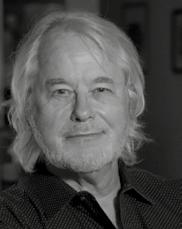
Tife is a Nigerian-British writer and performer. She is a graduate of the Roundhouse Poetry Collective, The Writing Squad and has a BA in English Literature from the University of Leeds. As well as writing poetry, she also writes plays for stage and screen. She is one of the Royal Court Theatre’s Jerwood New Playwrights, and her work has been shortlisted for the Women’s Prize for Playwriting, the Alfred Fagon Award and the Verity Bargate Award.

Freya (previously Freya Carter) was winner of the Bridport Poetry Prize (18–25) while being highly commended in the overall competition and has been Canterbury Poet of the Year. She came second in the Bedford Poetry Competition and won the Walter Swan Poetry Prize (18-25), alongside the Timothy Corsellis Poetry Prize. Freya’s poems and stories have been placed in the Winchester Poetry Prize, Dear Life anthology, Aesthetica Creative Writing Award, Mslexia Flash Fiction Competition, the Ilkley Literature Festival and Foyle Young Poet of the Year.
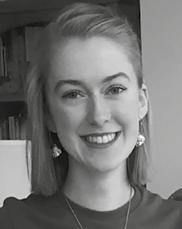
Mike Barlow
Mike has won prizes in a number of competitions including first prize in the 2006 National Poetry Competition with his poem ‘The Third Wife’. His first collection, Living on the Difference (2004), was shortlisted for the Jerwood Aldeburgh Prize. He has since published four collections and a number of pamphlets. Amicable Numbers (2008) was a Poetry Book Society Pamphlet Choice. His most recent collection is Hotel Anonymous (2021) and a fifth is forthcoming in 2023. He runs the pamphlet publishing venture Wayleave Press.
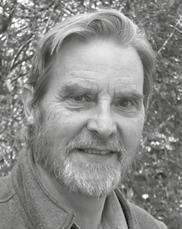
Elena Croitoru
Elena is a British-Romanian writer with an MSt in Creative Writing from the University of Cambridge. She won the Charles Causley Poetry Prize, the South Bank Poetry Prize and was a finalist in the Montreal Poetry Prize and Bridport Prize among others. Her first poetry pamphlet won the Live Canon Pamphlet Prize and was published in 2021. Her first novel was shortlisted for the Wilbur Smith Prize – Best Unpublished Novel.
Caroline Druitt
Caroline is a poet and creative living in South East London. She facilitates creative writing, well-being and movement workshops at a number of schools, universities, corporations and in her local community. Her poems have been published in Lucent Dreaming and The North. She graduated from the Creative and Life Writing MA at Goldsmiths in 2022 and was recently awarded Arts Council funding to develop her first poetry collection.


Susannah Hart
Susannah’s poems have been widely published in magazines and online. Her debut collection Out of True won the Live Canon First Collection Prize in 2018. She won first prize in the 2019 National Poetry Competition and was commended in the 2020 competition. Susannah lives in London, is on the board of Magma Poetry and is a long-serving governor at her local primary school.
Rosie Jackson
Rosie lives in Devon and teaches creative writing. Widely published, she has won many awards, including first prizes at the Stanley Spencer Poetry Competition (2017), Wells Festival (2018), Poetry Space (2019) and Teignmouth (2021). Her new collection Love Leans over the Table (2023) follows Light Makes it Easy, Aloneness is a Many-Headed Bird (with Dawn Gorman), Two Girls and a Beehive and Poems about Stanley Spencer (with Graham Burchell).
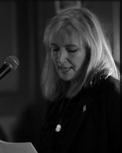
Jennifer Nadel
Jennifer is an author, activist and award-winning TV correspondent who turned to poetry to try to convey experiences and truths that lay beyond non-fiction’s grasp. She’s written widely about women’s rights and social justice including The Sunday Times bestseller, We: A Manifesto for Women Everywhere (co-authored with Gillian Anderson). American born, she lives in London and is the co-founder of Compassion in Politics.
Jeri Onitskansky
Jeri is an American-born psychotherapist and Jungian analyst. She has lived in London since 1996. Her poems have been widely published in journals and anthologies, and her pamphlet Call Them Juneberries (2015) was an iOTA shot winner. Her awards include winning the 2012 Ledbury and 2019 Ver Poets competitions. Her first collection, Kayaköy, was published by Blue Diode Press in January 2023.

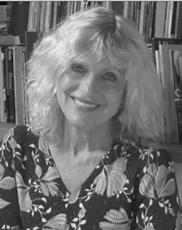

Congratulations to Michael Conley, selected by Chris McCabe, poet and National Poetry Librarian, as the winner of the Peggy Poole Award 2022. Michael will receive mentoring from Chris as his prize.

Michael is a poetry and prose writer from Manchester, UK. His poetry has appeared in magazines including Rialto, Magma, Butcher’s Dog and Strix, and his first pamphlet, Aquarium, was published by Flarestack. His work has also been highly commended in the Forward Prize. His prose has been shortlisted for the Manchester Fiction Prize, and his collection of short stories, Flare and Falter, was published by Splice in 2019 and longlisted for the Edge Hill Short Story Prize.
Run alongside the National Poetry Competition, the Peggy Poole Award is a talent development scheme for poets based in the North West of England. The past recipients are: Yvonne Reddick, the 2017 winner, mentored by Deryn Rees-Jones; Mark Pajak (2018), mentored by Michael Symmons Roberts; Saiqa Khushnood (2019), mentored by Malika Booker; Maria Isakova-Bennett (2020), mentored by Vona Groarke; and Lauren Garland (2021), mentored by Paul Farley. The Award is in memory of the poet and broadcaster Peggy Poole and made possible thanks to the generosity of her extended family and many friends.

2021 Eric Yip ‘Fricatives’
2020 Marvin Thompson ‘The Fruit of the Spirit is Love (Galatians 5:22)’
2019 Susannah Hart ‘Reading the Safeguarding and Child Protection Policy’
2018 Wayne Holloway-Smith ‘The posh mums are boxing in the square’
2017 Dom Bury ‘The Opened Field’
2016 Stephen Sexton ‘The Curfew’
2015 Eric Berlin ‘Night Errand’
2014 Roger Philip Dennis ‘Corkscrew Hill Photo’
2013 Linda France ‘Bernard and Cerinthe’
2012 Patricia McCarthy ‘Clothes that escaped the Great War’
2011 Allison McVety ‘To the Lighthouse’
2010 Paul Adrian ‘Robin in Flight’
2009 Helen Dunmore ‘The Malarkey’
2008 Christopher James ‘Farewell to the Earth’
2007 Sinéad Morrissey ‘Through the Square Window’
2006 Mike Barlow ‘The Third Wife’
2005 Melanie Drane ‘The Year the Rice-Crop Failed’
2004 Jon Sait ‘Homeland’
2003 Colette Bryce ‘The Full Indian Rope Trick’
2002 Julia Copus ‘Breaking the Rule’
2001 Beatrice Garland ‘undressing’
2000 Ian Duhig ‘The Lammas Hireling’
1999 Simon Rae ‘Believed’
1998 Caroline Carver ‘horse underwater’
1997 Neil Rollinson ‘Constellations’
1996 Ruth Padel ‘Icicles Round a Tree in Dumfriesshire’
1995 James Harpur ‘The Frame of Furnace Light’
1994 David Hart ‘The Silkies’
1993 Sam Gardiner ‘Protestant Windows’
1992 Stephen Knight ‘The Mermaid Tank’
1991 Jo Shapcott ‘Phrase Book’
1991 John Levett ‘A Shrunken Head’
1990 Nicky Rice ‘Room Service’
1989 William Scammell ‘A World Elsewhere’
1988 Martin Reed ‘The Widow’s Dream’
1987 Ian Duhig ‘Nineteen Hundred and Nineteen’
1986 Carole Satyamurti ‘Between the Lines’
1985 Jo Shapcott ‘The Surrealists’ Summer Convention
1984 Tony Curtis ‘The Death of Richard Beattie-Seaman in Belgian Grand Prix, 1939’
1983 Carol Ann Duffy ‘Whoever She Was’
1982 Philip Gross ‘The Ice Factory’
1981 James Berry ‘Fantasy of an African Boy’
1980 Tony Harrison ‘Timer’
1979 Medbh McGuckian ‘The Flitting’
1978 Michael Hulse ‘Dole Queue’
To watch recordings of this year’s National Poetry Competition winners and explore our archive of poems from across the four decades of the competition, visit poetrysociety.org.uk/npc
The National Poetry Competition is one of the world’s biggest and most prestigious poetry competitions, and an important career milestone for both established and emerging poets.
The 2023 competition launches in May, closing date 31 October 2023.
For more information and to sign up to receive updates, visit poetrysociety.org.uk/npc

National Poetry Competition Winners’ Anthology 2022
The Poetry Society, 22 Betterton Street, London WC2H 9BX poetrysociety.org.uk
ISBN: 978-1-911046-43-1
National Poetry Competition 2022 cover artwork by Wu He Ping
© The Poetry Society & authors, 2023
Image credits: Jason Allen-Paisant (photo: Dimitri D’ippolito), Elena Croitoru (photo: James Reed), Caroline Druitt (photo: Sam Tingman), Tife Kusoro (photo: Samuel Black), Greta Stoddart (photo: Robin Mills), Michael Symmons Roberts (photo: Andrew Crowley)